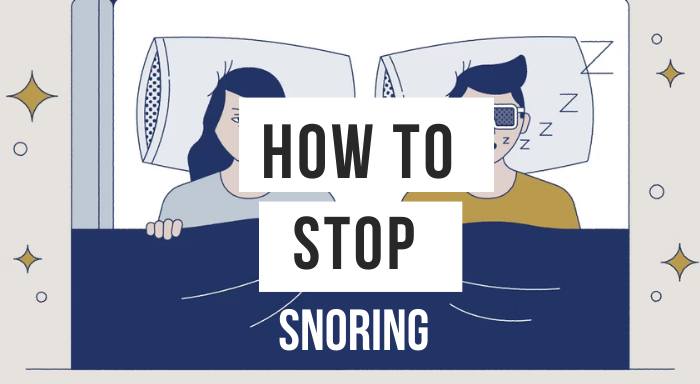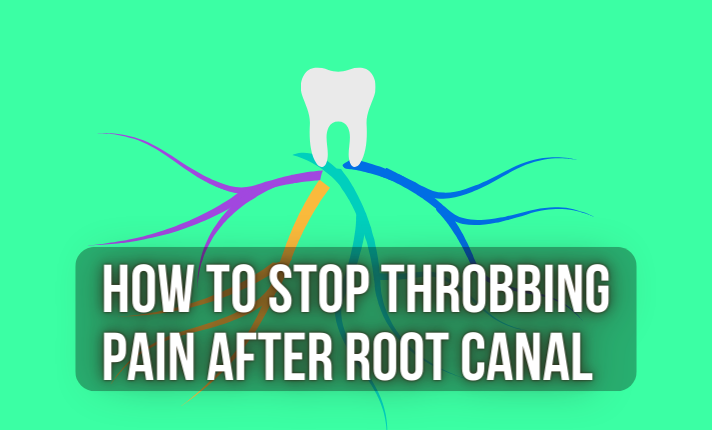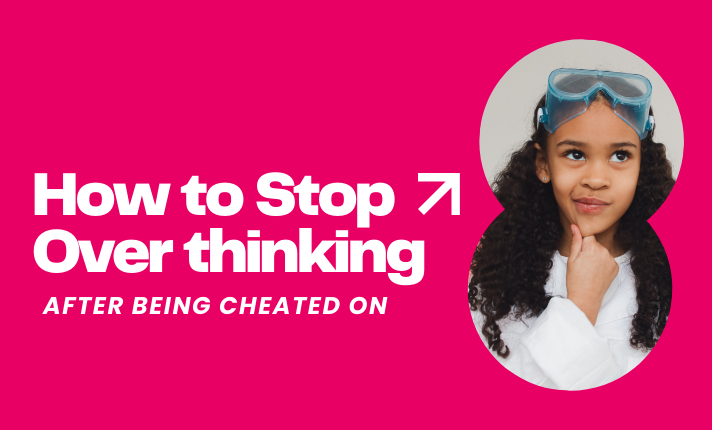Zinc Functions: Which One Doesn’t Involve Zinc?
Zinc is a key trace mineral in our bodies. It’s involved in many important processes. You might wonder, “In which of the following functions is zinc not involved?” This article will look at zinc’s many roles and find the one it doesn’t play.
Key Takeaways
- Zinc is an essential trace mineral with numerous functions in the body.
- Zinc plays a crucial role in immune system function, wound healing, enzymatic activity, protein synthesis, and more.
- Understanding the specific functions of zinc can help you appreciate its importance for overall health and well-being.
- Identifying the one function where zinc is not involved can provide valuable insights into the mineral’s diverse capabilities.
- Exploring the role of zinc in the human body can help you make informed decisions about your nutritional needs and supplementation requirements.
Introduction to Zinc’s Essential Role
Zinc is a trace mineral that’s vital for our health. It’s found in large amounts in our bodies. Zinc functions include supporting our immune system, making proteins, and healing wounds.
Zinc’s Importance as a Trace Mineral
Even though we need only a little zinc, it’s very important. It helps our cells grow and work right. It’s also key for over 300 enzymes in our body.
Adequate zinc intake keeps our immune system strong. It helps our skin heal and supports our brain function.
Zinc’s Diverse Functions in the Body
- Immune system support: Zinc helps our immune cells fight off infections.
- Protein synthesis: It’s needed for making and keeping proteins, which are vital for our cells and tissues.
- Wound healing: Zinc helps make collagen, which is important for skin and healing wounds.
- Enzymatic activity: Zinc works with many enzymes, helping with various chemical reactions in our body.
- Neurological function: It’s involved in nerve impulses and brain function.
To stay healthy, we need enough zinc intake. This can come from food or supplements. Knowing how zinc benefits our bodies helps us take care of our health.
Immune System Function
Zinc is key for a strong immune system. It helps develop and work well with immune cells like T cells and natural killer cells. It also controls inflammation, helping fight off germs.
Having enough zinc is crucial for a healthy immune system. Zinc deficiency can weaken the immune system, make us more prone to infections, and slow down healing. But, taking zinc supplements can boost our immune system and fight off some diseases.
| Immune System Benefits of Zinc | Effects of Zinc Deficiency |
|---|---|
|
|
Zinc is vital for a strong immune system. Eating right or taking zinc supplements can keep our immune system strong and ready to fight off diseases.
“Zinc is essential for the development and function of immune cells, and zinc deficiency can impair immune responses.”
Wound Healing and Skin Health
Zinc is key for your skin’s health and strength. It helps make collagen, a protein that keeps your skin elastic and strong. Zinc aids in healing wounds and keeps your skin looking great.
Zinc and Collagen Synthesis
Zinc is vital for making collagen, the most common skin protein. It boosts collagen production, which keeps your skin firm and elastic. This makes your skin supple and strong.
Zinc and Skin Integrity
Zinc also helps keep your skin healthy and strong. It supports your skin’s defense against harm and keeps it looking good. Zinc helps your skin cells grow back, which is important for healing wounds.
Zinc is crucial for healthy skin. It helps with collagen and keeps your skin strong. Adding zinc-rich foods or supplements to your diet can improve your skin care.
In Which of the Following Functions is Zinc Not Involved?
Zinc is a key mineral for many body functions. It helps keep the immune system strong, aids in wound healing, and supports healthy skin. But, there’s one area where zinc is not directly involved.
Zinc doesn’t directly help in making energy for the body. It’s important for many enzymatic activities and metabolic pathways. Yet, it doesn’t directly contribute to the main energy-making processes like cellular respiration or ATP synthesis.
- Zinc is not a key part of the mitochondria. These are the cell’s powerhouses that turn nutrients into energy, or ATP.
- Instead, zinc supports energy metabolism in some ways. It helps with carbohydrate and lipid metabolism. But it’s not directly involved in the main energy-making processes.
This knowledge helps us understand zinc’s role better. It shows us where zinc is and isn’t involved. This helps us see zinc’s importance for health and well-being more clearly.
“Zinc is a versatile mineral, but it doesn’t have a direct role in energy production within the body.”
Zinc and Enzymatic Activity
Zinc is a key mineral for many enzymes in our bodies. These enzymes, called zinc metalloenzymes, need zinc to work right. Knowing how zinc helps enzymes is key to staying healthy.
Zinc Metalloenzymes and Their Roles
Zinc metalloenzymes do lots of important jobs in our bodies. They use zinc to help them work. Some of their main jobs include:
- Protein synthesis and metabolism
- Cellular growth and division
- Immune system function
- Wound healing and skin integrity
- Neurological function and neurotransmitter regulation
- Antioxidant defense mechanisms
For example, carbonic anhydrase helps control pH and carbon dioxide. It’s a zinc metalloenzyme. Another example is superoxide dismutase, a zinc-dependent antioxidant.
| Zinc Metalloenzyme | Function |
|---|---|
| Carbonic Anhydrase | Regulation of pH and carbon dioxide levels |
| Superoxide Dismutase | Antioxidant defense mechanism |
| Alkaline Phosphatase | Bone and liver function |
| Matrix Metalloproteinases | Tissue remodeling and wound healing |
Zinc metalloenzymes show how important zinc is for our bodies. They help with many important functions.
Zinc and Protein Synthesis
Zinc is key for your immune system and healing wounds. It also helps with protein synthesis and metabolism. Proteins are vital for your body’s cells, tissues, and organs.
Your cells need zinc for protein synthesis. This is how they turn genetic information into working proteins. Zinc helps enzymes work well in this process.
Zinc is also important for protein structure. Without enough zinc, proteins might not fold right. This can lead to problems and diseases.
So, keeping zinc levels right is important. It helps your body make and use proteins well. Eating zinc-rich foods or taking supplements can help.
| Zinc’s Role in Protein Synthesis | Zinc’s Role in Protein Metabolism |
|---|---|
|
|
Knowing how zinc affects protein synthesis and metabolism helps you stay healthy. It ensures your body has what it needs for protein balance and overall health.
Zinc and Growth and Development
Zinc is a vital mineral for healthy growth and development. It’s especially important for kids and teens, whose bodies are changing fast. They need enough zinc to grow well.
Zinc’s Role in Cell Division and Growth
Zinc is key for cell division, which drives growth. It helps enzymes work right in DNA replication and protein making. This ensures cells divide and grow healthily.
Zinc also helps form and work tissues and organs. This includes bones, muscles, and connective tissue. These are vital for growing and maturing. So, having enough zinc and development is key for kids and teens to reach their growth potential.
Zinc also helps control hormones like growth hormone and IGF-1. These hormones are important for growth and development. Zinc helps these hormones work right, keeping growth and development in balance.
In short, zinc and growth are very important. Zinc is a key player in cell division, tissue formation, and hormone regulation. It’s essential for healthy growth and development at all ages.
Zinc and Reproductive Health
Zinc is a key mineral for reproductive health in both men and women. It helps the reproductive system work right. This ensures fertility and supports the growth of a fetus.
Zinc’s Importance for Male Fertility
Zinc is crucial for men’s reproductive health. It helps make and mature sperm and keeps testosterone levels up. Good zinc intake means better sperm quality and fertility.
Research shows zinc deficiency can lower sperm quality and fertility in men. But, zinc supplements can boost sperm health and increase conception chances.
Zinc’s Importance for Female Fertility
Zinc is also key for women’s reproductive health. It helps control hormones like estrogen and progesterone. These hormones are vital for ovulation, implantation, and early fetal growth.
Enough zinc is linked to better egg quality and higher fertilization chances. Zinc deficiency can cause issues like irregular periods, ovulation problems, and infertility.
Getting enough zinc, through diet or supplements, can help achieve and keep a healthy pregnancy.
| Zinc and Male Fertility | Zinc and Female Fertility |
|---|---|
|
|
“Adequate zinc intake is essential for both male and female reproductive health, contributing to improved fertility and a healthy pregnancy.”
Knowing zinc’s role in reproductive health helps people meet their zinc needs. This can be through a balanced diet or supplements. It’s a step towards better fertility and a healthy pregnancy.
Zinc and Antioxidant Defense
Zinc is key for many body functions and helps protect your cells. It fights off free radicals and oxidative stress. These can harm your health over time.
Zinc helps an enzyme called superoxide dismutase (SOD) work better. SOD is a strong antioxidant that stops harmful superoxide radicals. Zinc is a crucial cofactor for this enzyme, helping it function effectively and maintain a healthy balance of reactive oxygen species in your body.
Zinc also helps make other antioxidants, like glutathione. This boosts your body’s fight against oxidative stress. Zinc and antioxidants protect your cells and help them stay healthy and long-lasting.
Also, zinc and oxidative stress are closely related. Not having enough zinc can cause more oxidative damage. But, having enough zinc can reduce the risk of diseases caused by oxidative stress.
| Antioxidant Function | Mechanism |
|---|---|
| Superoxide Dismutase (SOD) Activity | Zinc is a crucial cofactor for the SOD enzyme, which neutralizes harmful superoxide radicals. |
| Glutathione Regulation | Zinc helps maintain the production and activity of the powerful antioxidant, glutathione. |
| Oxidative Stress Reduction | Adequate zinc levels help mitigate the damaging effects of free radicals and oxidative stress. |
Knowing how zinc and antioxidants work together helps you protect your cells. Eating zinc-rich foods or taking supplements can boost your antioxidant defenses.
Zinc and Neurological Function
Zinc is key for a strong immune system and healthy skin. It also helps with brain function. This trace mineral helps control neurotransmitters, which are like messengers in the brain.
Zinc’s Role in Neurotransmitter Function
Zinc helps make, release, and work neurotransmitters like glutamate, GABA, and dopamine. These messengers are important for thinking, mood, and brain health. Zinc ensures our brain signals work well.
Zinc also helps control ion channels in the brain. These channels send electrical signals. This affects how neurotransmitters work and keeps the brain healthy.
Not having enough zinc can mess with neurotransmitters. This can cause problems like bad thinking, mood issues, and trouble sensing things. Eating right or taking zinc supplements can help keep the brain and neurotransmitters in balance.
“Zinc is essential for the proper functioning of the nervous system, and it plays a crucial role in the regulation of neurotransmitters, which are vital for cognitive processes and overall brain health.”
Conclusion
Zinc is a key trace mineral that helps our bodies in many ways. It boosts the immune system and helps wounds heal. It also aids in making proteins and supports growth.
But, there’s one thing zinc doesn’t do directly. Knowing how zinc helps us and what it doesn’t can help us stay healthy. We can keep zinc levels right by eating zinc-rich foods or taking supplements.
Adding zinc to your diet supports a strong immune system and helps wounds heal. It also helps with growth and reproductive health. By eating zinc-rich foods or taking supplements, you help your body work its best.
FAQ
In which of the following functions is zinc not involved?
Zinc is key in many bodily functions. But, it’s not directly involved in vision. Zinc doesn’t play a role in the visual process or eye function.
What are the key functions of zinc in the body?
Zinc is vital for many bodily processes. It supports the immune system, wound healing, and skin health. It also helps with enzymatic activity, protein synthesis, growth, and reproductive health. Zinc acts as an antioxidant and is important for the nervous system.
How can zinc deficiency impact health?
Not having enough zinc can harm your health. It can weaken your immune system and slow down wound healing. It can also affect your taste and smell, growth, fertility, and increase infection risk. Zinc deficiency can cause neurological problems too.
What are the benefits of adequate zinc intake?
Getting enough zinc is good for your health. It boosts your immune system and helps with wound healing and skin health. It supports growth, reproductive health, and acts as an antioxidant. Zinc also helps with neurological function.
What are some good dietary sources of zinc?
You can get zinc from various foods. Meat, poultry, and seafood, especially oysters, are good sources. Whole grains, legumes, nuts, seeds, dairy, and fortified cereals and breads also provide zinc.
When might zinc supplementation be recommended?
You might need zinc supplements in certain situations. This includes if you have a deficiency or need more zinc, like during pregnancy or growth. It’s also needed for malabsorption conditions, chronic diarrhea, alcoholism, or if you follow a vegetarian or vegan diet.
Can excessive zinc intake be harmful?
Yes, too much zinc can be harmful. It can cause nausea, vomiting, loss of appetite, and stomach cramps. It can also lead to diarrhea, headaches, and affect copper and iron absorption.
How is zinc absorbed and what factors can affect its absorption?
Zinc is absorbed in the small intestine. Factors like diet, gastrointestinal conditions, age, and medication can affect absorption. For example, phytates, fiber, calcium, or iron in the diet can reduce zinc absorption.
What are some of the key zinc-dependent enzymes in the body?
Zinc is crucial for many enzymes in the body. These enzymes, known as zinc metalloenzymes, are vital for functions like bone mineralization, pH regulation, antioxidant defense, and alcohol metabolism. Examples include alkaline phosphatase, carbonic anhydrase, superoxide dismutase, and alcohol dehydrogenase.







